Recycling old land for a new life
For a pair of Brazilian farmers, a former landfill is their livelihood

A free daily email with the biggest news stories of the day – and the best features from TheWeek.com
You are now subscribed
Your newsletter sign-up was successful
Two and a half hours outside of Sao Paulo, Brazil, is a vibrant, pesticide-free, organic farm. For more than a decade, Nisse and Armando have poured their lives into this land, converting it from a landfill abandoned by the government into rich soil that harvests corn, beans, squash, sweet potatoes, bananas, mangos, oranges, and much more each season.
But Nisse and Armando do not own this land. Technically, they are squatters, albeit productive ones, and could be kicked off any day.
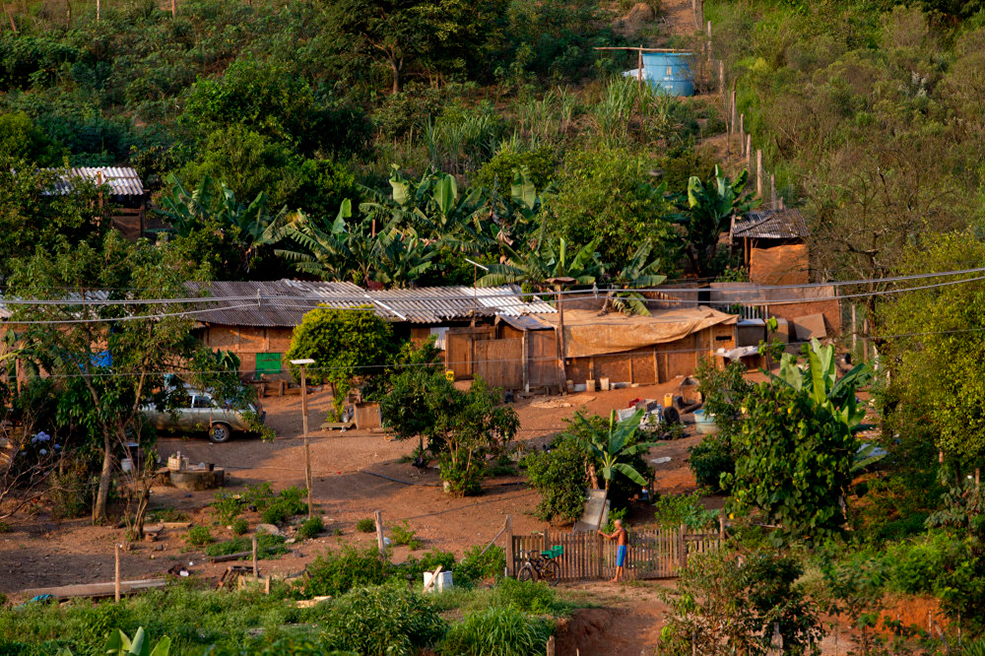
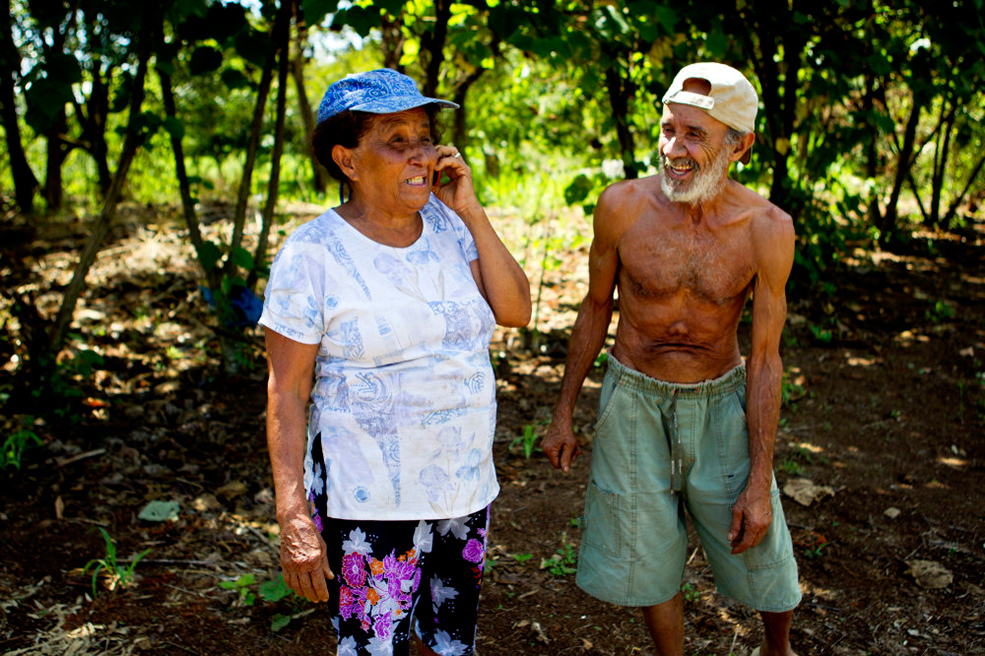
The trip from Sao Paulo to the farm is a winding one, involving four subways, two trains, a bus, and a four-mile walk. Photographer Matt Masin knows it well, having taken the trek several times over the course of a week-long photojournalism trip, supported by the University of Nebraska-Lincoln, where Masin will complete his senior year this fall.
The Week
Escape your echo chamber. Get the facts behind the news, plus analysis from multiple perspectives.

Sign up for The Week's Free Newsletters
From our morning news briefing to a weekly Good News Newsletter, get the best of The Week delivered directly to your inbox.
From our morning news briefing to a weekly Good News Newsletter, get the best of The Week delivered directly to your inbox.
UNL's "Global Eyewitness" program gives journalism students an opportunity to create multimedia stories about people from around the world; Masin traveled to Brazil in December 2012, and he returned with "Recycled Land."
"I actually went with a different story in mind," Masin says. "Plans fell through on that, and another contact helped me with a lead on the farm."
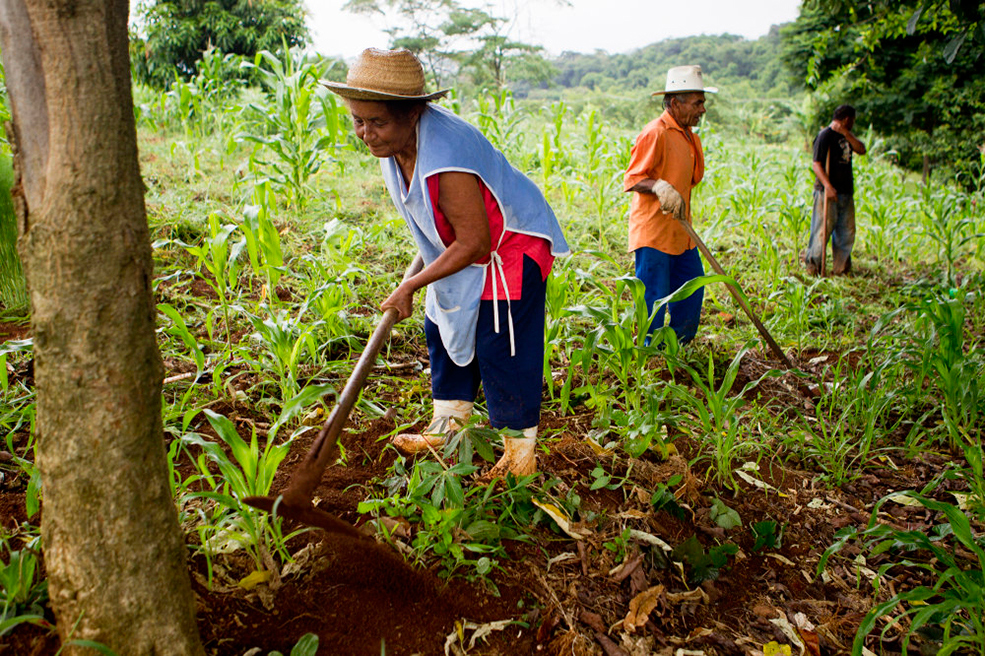
Nisse and Armando's farm is part of a social movement in Brazil that aims to provide a sustainable, self-sufficient form of life for the country's rural poor. There are several other farms around the couple's land that are part of the same movement. Nisse acts as a production manager for the small community, checking in on the families and their crops, offering help and asking for it as well.
Meanwhile, Nisse and Armando continue to appeal to government officials to gain legal ownership of the land, but find themselves tangled in red tape each time. And so, the couple lives with the constant fear that the government could suddenly renew interest in the land and evict them.
A free daily email with the biggest news stories of the day – and the best features from TheWeek.com
Armando is not a young man, either, and he often over-exerts himself while completing the farm's grunt-work chores. He recently underwent heart surgery and has since given up drinking. He tries less strenuous farm tasks, like feeding the animals, but still has to rest several times a day.
"It could be kind of scary when he would lift heavy logs or dig holes and end up looking like he was about to pass out," Masin says. "He just doesn't want to quit with the dream of owning and maintaining this farm."
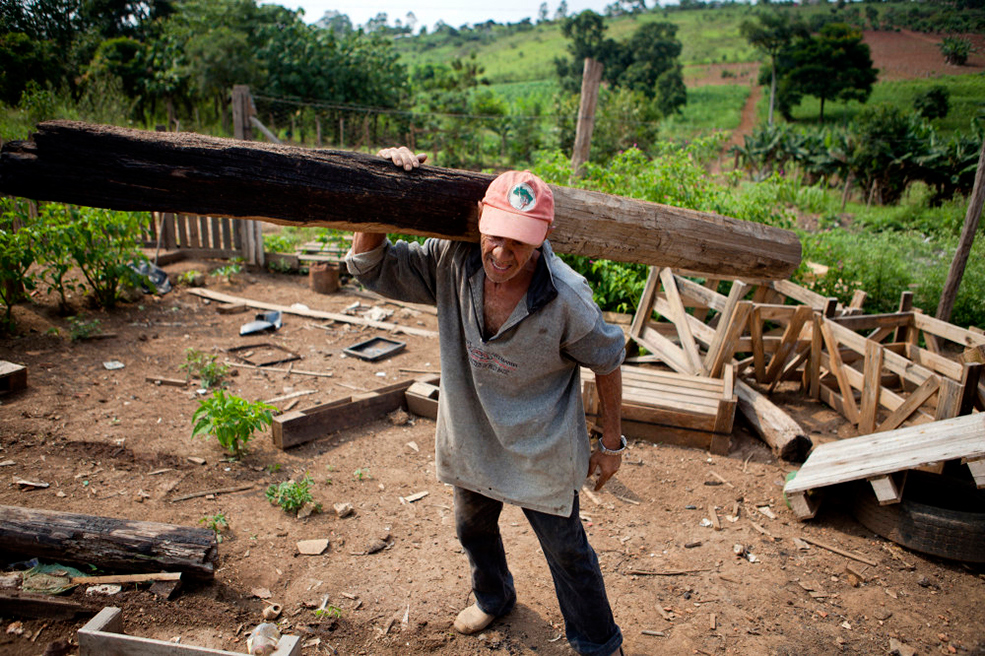
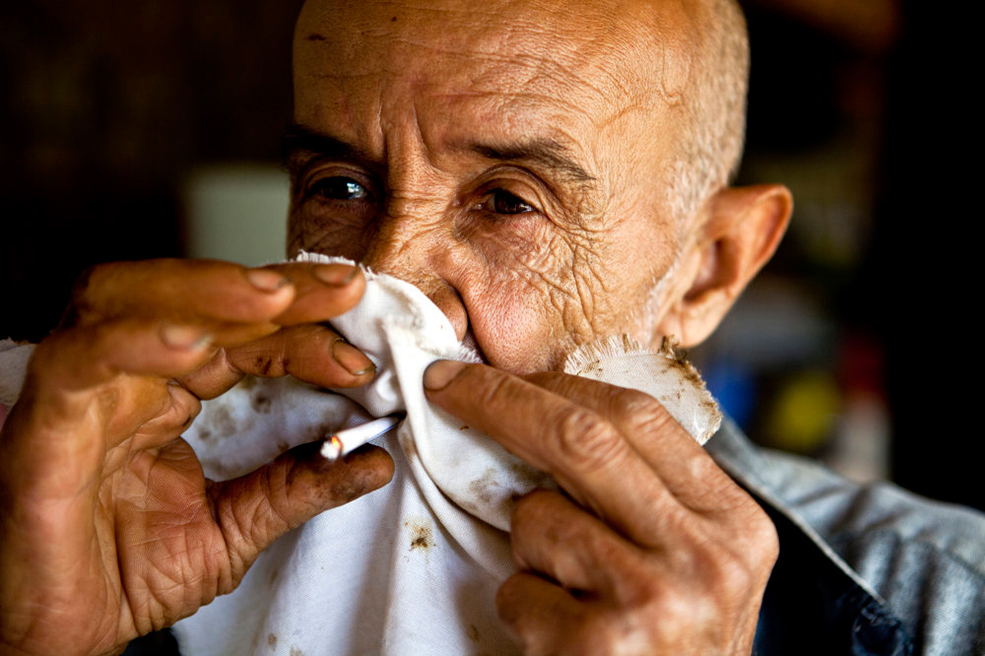
A world away from his own upbringing in Nebraska, Masin still found connections to home.
"One of the first things I noticed at the farm was the sounds — or lack thereof," Masin says. "It was no different than my uncle's farm in rural Nebraska. There were the same sounds of chickens and pigs, breezes blowing through cornfields, and the smells were just as pleasant."
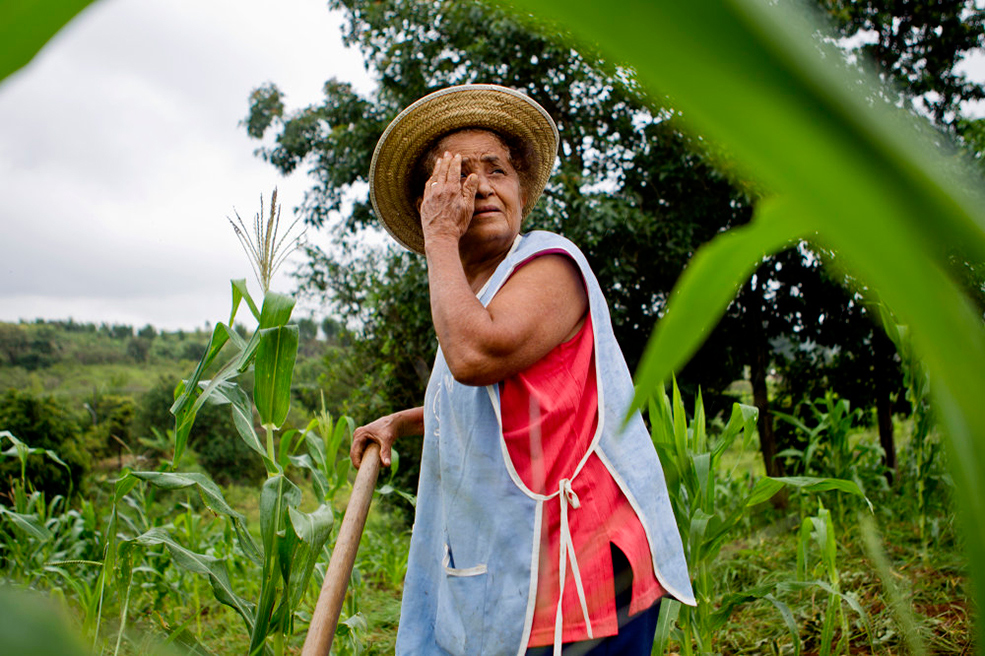
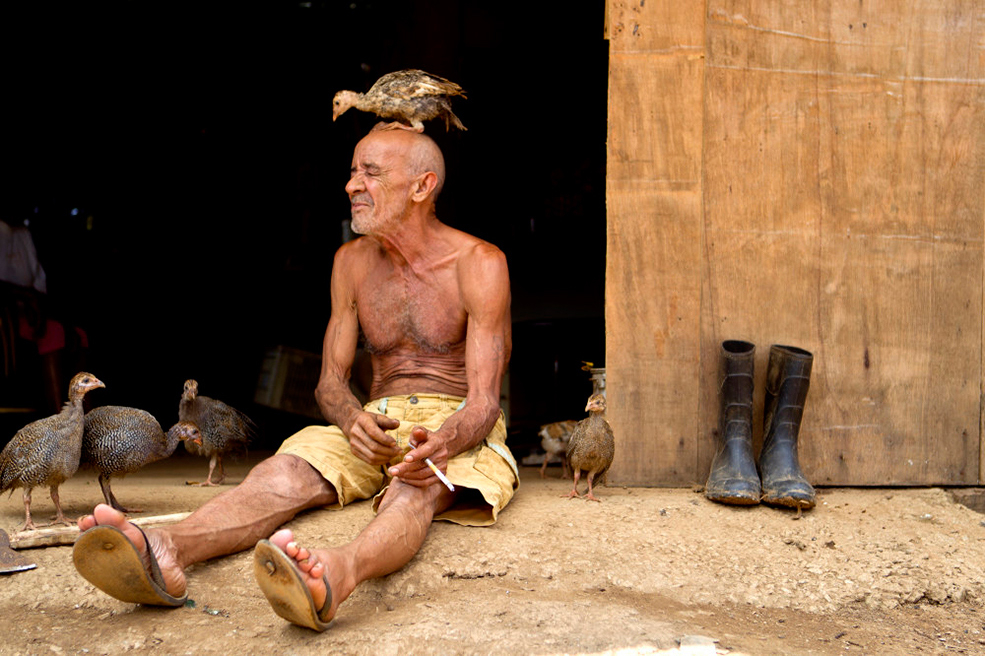
Masin, along with fellow multimedia journalist Nickolai Hammar, who shot video of the couple's operation, were invited to spend a night at the farm.
"Nicky and I had gotten into our beds, which were located out in the garage, and we shut the light off," Masin says. "Then, in comes Armando with a flashlight and a cage." Armando had needed to dispose of a captured rat, and he figured he'd give the guys a look first.
With such an intimate glimpse of life on the farm, and thanks to the generosity of his subjects, Masin regretted having to pack up at week's end.
"'Recycled Land' was the first time I really embedded myself into a specific character's life, and I definitely felt a friendship form between us," Masin says. "I remember how sad we felt walking back to catch the bus our last day, and how much we wished we didn't have to go. I've never felt so depressed to go home."
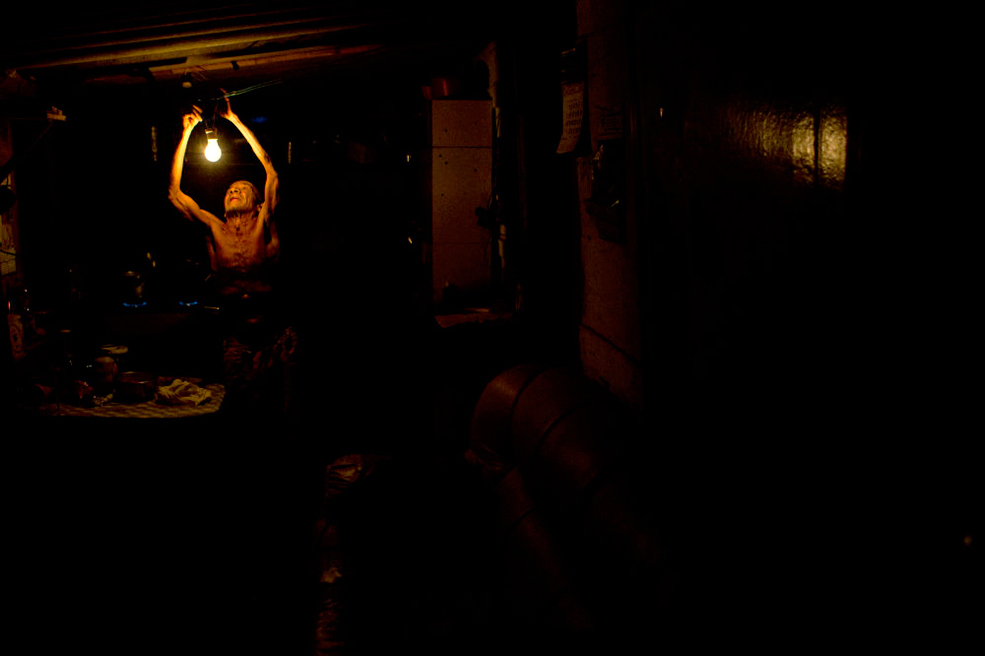
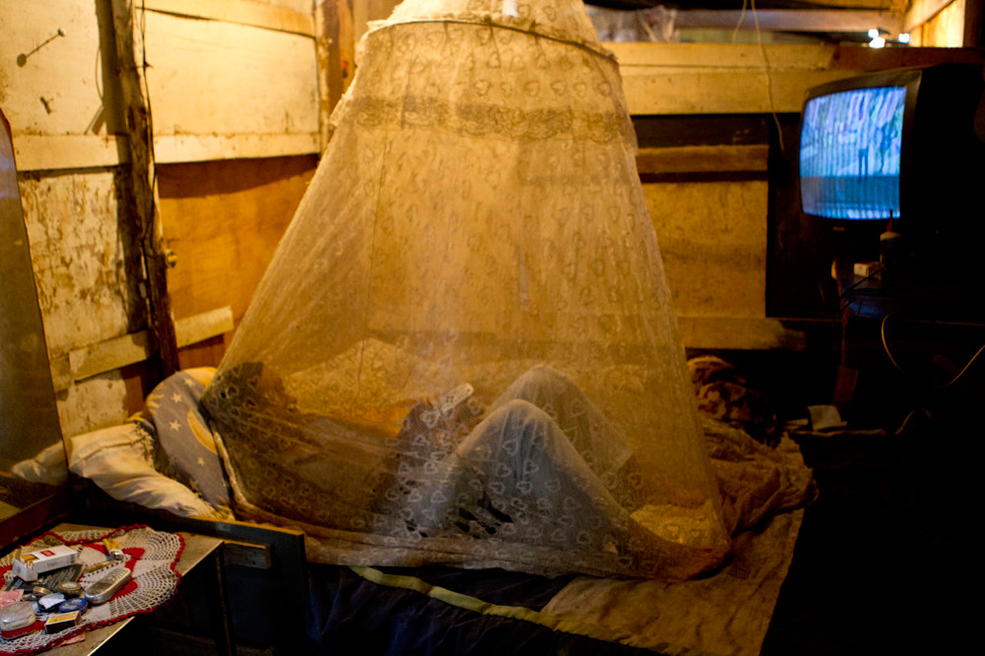
**See more of Masin's work on his website, or follow him on Instagram**
Sarah Eberspacher is an associate editor at TheWeek.com. She has previously worked as a sports reporter at The Livingston County Daily Press & Argus and The Arizona Republic. She graduated from Northwestern University's Medill School of Journalism.
-
 American universities are losing ground to their foreign counterparts
American universities are losing ground to their foreign counterpartsThe Explainer While Harvard is still near the top, other colleges have slipped
-
 How to navigate dating apps to find ‘the one’
How to navigate dating apps to find ‘the one’The Week Recommends Put an end to endless swiping and make real romantic connections
-
 Elon Musk’s pivot from Mars to the moon
Elon Musk’s pivot from Mars to the moonIn the Spotlight SpaceX shifts focus with IPO approaching
